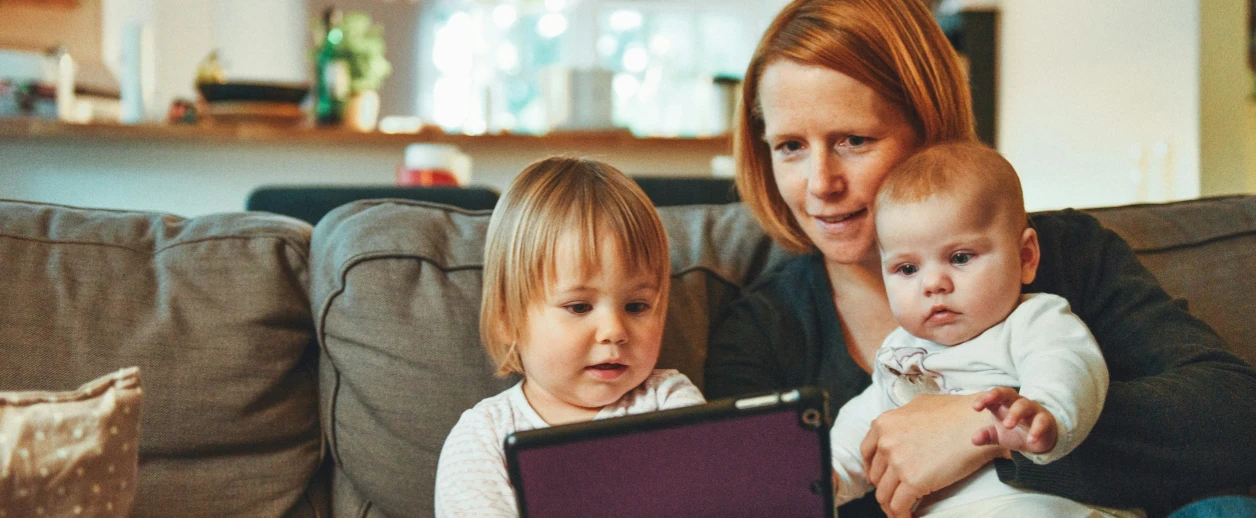What is Family Counseling?
Family counseling is when a professional, like a licensed therapist or social worker, meets with members of a family to talk about their problems. The counselor helps everyone share their feelings, listen and learn new ways to handle situations. Sometimes, the whole family goes to counseling together. Other times, just parents or children meet with the counselor. Counseling is a safe place where everyone can talk and get support. Family counseling can help with situations like:
- Arguing among family members.
- Changes in the family, like divorce or a new baby.
- Feeling sad, angry or worried.
- Trouble at school or with friends.
- Dealing with loss or grief.
- Blended families (when parents remarry and bring children together).
Counseling for Children
Your children can have feelings that are hard to understand or difficult to talk to you about. They might feel scared, sad or angry, and they may not know how to ask for help. Counseling gives children a safe place to share their feelings and learn ways to cope.
Children may go to counseling if they are worrying a lot or feeling anxious. It can help with problems like acting out or having trouble making friends. Counseling can also help children deal with trauma or grief. Below are some common types of therapy for children. To learn more, visit the Children's Mental Health page.
Behavioral Therapy
Individual Therapy
Group Therapy
Counseling for Parents
As a parent, you may feel stressed, tired or unsure how to help your children. You may also struggle with depression, anxiety, and working or communicating with your partner. Counseling can help you learn new ways to handle stress, talk to your children and solve problems at home. There are several types of counseling for parents, including:
- Individual counseling (parent and counselor only).
- Couples counseling (for parents who want to work on their relationship).
- Group counseling (meeting with other parents who have similar problems).
Parents in Texas can find information on mental health services on the Adult Mental Health page.

Twogether in Texas is a program that helps couples learn how to have strong and happy relationships as they prepare to marry. The program offers free or low-cost classes all over Texas. You can take classes in person or online to learn how to talk to each other, solve problems and work as a team.
Educational materials and classes help couples discuss communication styles and expectations before marriage so they can better understand and support each other. To learn more, find a class or ask for help, visit the Twogether in Texas website.
Counseling for the Whole Family
Sometimes, the whole family needs help getting along. Family counseling can help you talk about problems and understand each other better. The counselor helps everyone share their feelings and listen to each other.
Your family may benefit from counseling if:
- You and your children are arguing a lot.
- Your family is going through a big change, like moving or divorce.
- Someone in the family is sick or has died.
- You are a blended family having trouble getting along.
For information about child and family counseling services in Texas, visit the Get Parenting Tips website. For a list of family counseling resources, visit the Health and Human Services Commission Mental Health and Substance Use Resources page.
Support Services
In Texas, there are many free and low-cost programs to help families. Medicaid can cover counseling in some cases. Talk to your doctor or managed care provider about a possible referral to a counselor in your network.
Family and Youth Success Program
The Health and Human Services Commission Family and Youth Success program addresses family conflict and everyday struggles while promoting strong families and youth resilience. Program providers offer one-on-one coaching or counseling with a trained professional and group-based learning for youth and parents. Some programs under Family and Youth Success also operate a 24/7 hotline for families with urgent needs. To learn more, visit the Family and Youth Success page and GetParentingTips.com.
Texas Parent Helpline
Looking for help with your parenting challenges? Call, chat or text the Texas Parent Helpline 24/7 for problems, big and small. The Texas Parent Helpline provides free information and referrals to counseling and other local services in communities across Texas. To learn more, visit the Texas Parent Helpline page.
Crisis Services
Crisis intervention provides quick help for children or teens who feel unsafe or need immediate mental health services. Texas Health and Human Services offers crisis support for people facing a mental health crisis. View a list of mental health offices in your area and crisis hotline numbers on the Mental Health Crisis Services page.
Youth Crisis Helpline
The Texas Youth Helpline is a 24-hour statewide helpline for youth and their families. The helpline provides callers with crisis intervention and support services. Parents or youth who call the helpline are often in a crisis or high-stress situation. Helpline staff and volunteers can help the caller develop a sensible plan of action. They don’t provide counseling, as they are not licensed or trained professional counselors. They are advocates for the best interest of the caller and can connect the caller with counseling resources when needed. To learn more, visit the Help for Youth page.
